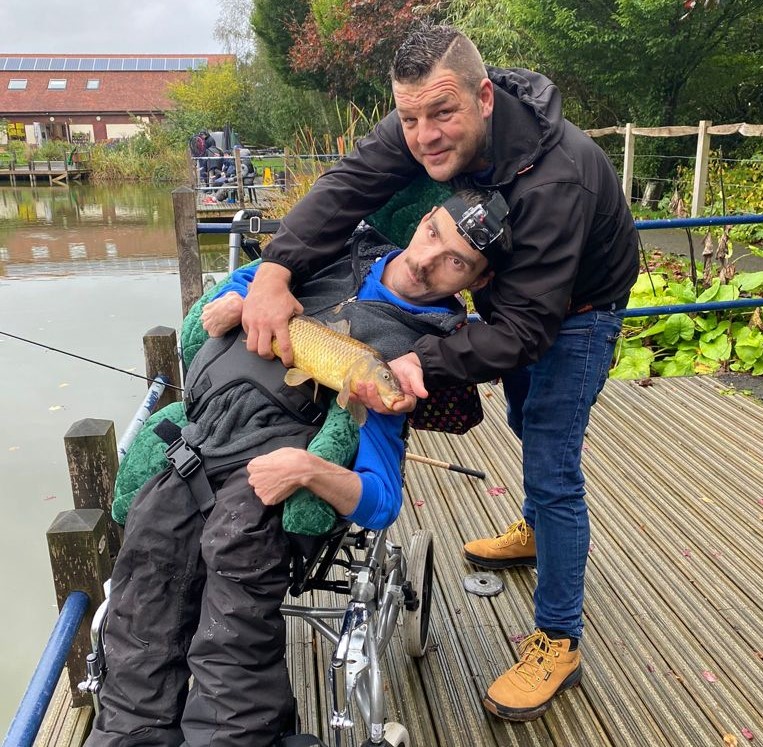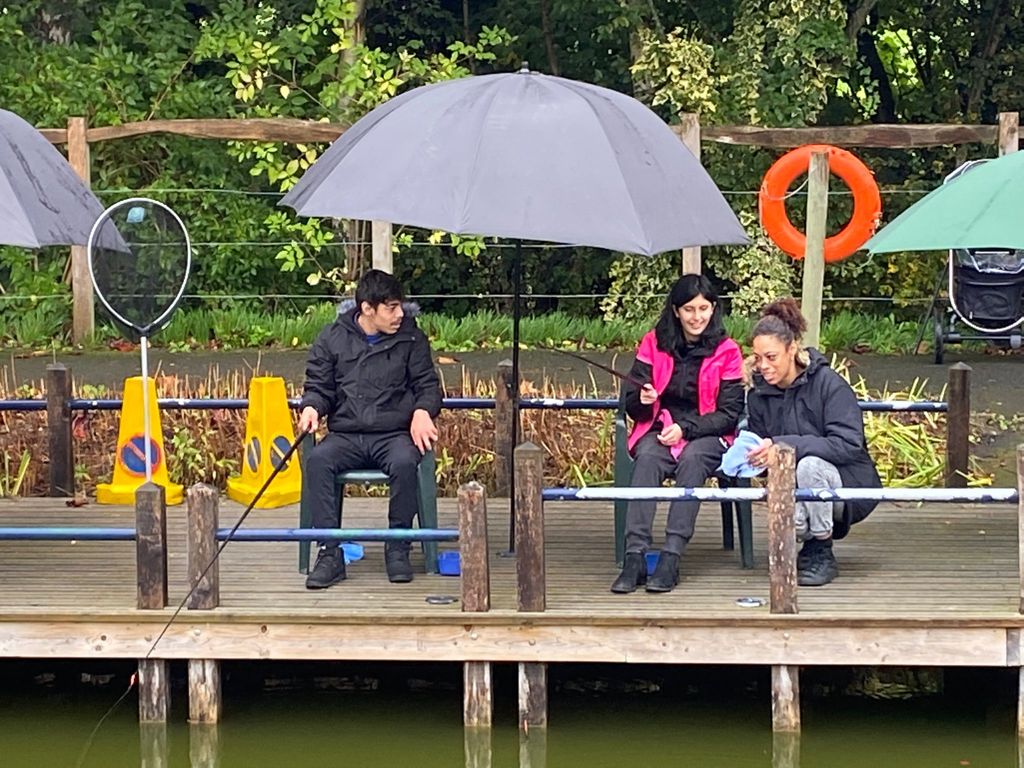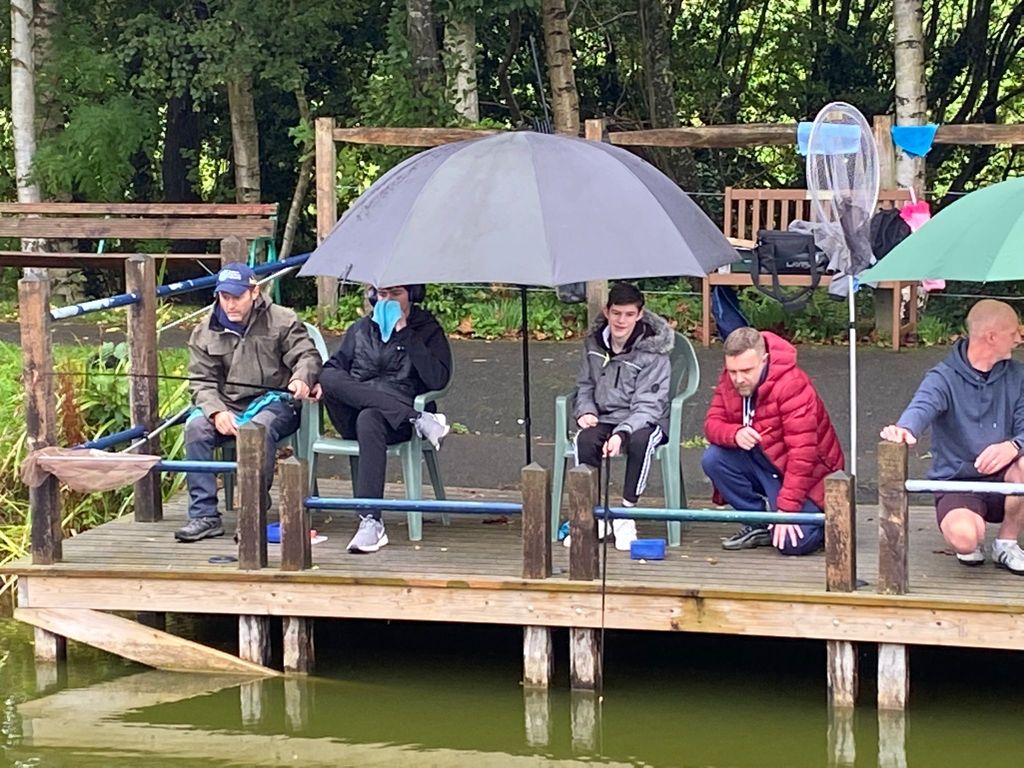They are used to being in some challenging situations and often facing violence but security staff at Walsall Manor Hospital experience another side of life through taking disabled adults and children fishing.
It’s only 13 miles from the Manor but the rural peace and tranquillity of the Albrighton Moat Project, north west of Wolverhampton, is a world away from the sort of confrontation Terry Moseley and his team can face – as well as the daily challenges of the disabled people they take on the trips.
Security guard Terry has been helping disabled people to fish since the age of eight.
The scheme was established by Terry’s dad Terry senior, an ex-Forces servant who has been a wheelchair user for 35 years.
Twice a week, the father of three, 40, takes disabled children from the age of six to 16 in all weathers to the site, which is one of dozens nationwide managed by the British Disabled Angling Association.
The Moat Project even featured as an episode on TV show Challenge Anneka, which saw presenter Anneka Rice manage the development of the facility in two and a half days.
Anneka had to excavate the site, have a moat designed and take delivery of 200 fresh fish and 200,000 gallons of water in time for an angling competition. The episode was screened in October 1992.
Now nearly three decades on, Terry has persuaded fellow Apcoa colleagues Sharon Bovell, 43, and Dave Tasker, 37, to join him helping disabled children and adults to enjoy fun days out fishing.
“In the day job we see people from all walks of life – we get knives and syringes pulled on us, as well as physical and verbal abuse,” said Terry, who also works as a doorman at a Walsall nightclub at weekends. “You can get a lot of aggressive people in A&E.
“Taking the kids fishing takes me to a different world. I love doing it. When you see kids’ faces it’s priceless.
“We do coaching so people who have never fished before get to a stage where they can fish on their own or with a buddy.
“The schools can take them to the cinema for example, but it’s great to get the children outside. They can’t play football or run around a field but they can use a fishing rod.”
It’s clear Terry and his colleagues gets as much pleasure out of the experience as the people they are with.
“I feel we make a difference,” said Terry. “The kids spend their week waiting for this trip – it’s one day but it could mean a year to them.
“One adult we take I’ve known since I was eight and he texts me every day counting down the days until we go.
“Many times I have driven back crying all the way because of the pleasure on their faces despite all they face up to.
“The feeling I get is tremendous and it’s definitely better than the day job!”
Sharon, who has three grown-up children and three grandchildren, and Dave have joined Terry recently and both plan to enrol on a disabled awareness coaching course in January to become level one fishing coaches.
“I’ve only recently been but I really enjoyed it and I plan to do more trips and go on the coaching course,” said Sharon.
Dave added: “It’s great to see the impact it has on the kids and I’m looking forward to doing the course.”
Some of the people they take have severe physical disabilities, while others arrive in specially adapted beds and some have autism or are blind.
One service user with cerebral palsy has an adapted fishing rod which allows him to operate it using just his thumb.
All the equipment is supplied – there is even a remote control device with motors either side of a switch allowing people with no arms to cast their rod.
“We have even had end-of-life patients brought in ambulances because they wanted to do something with the time they have got left, added Terry.”



